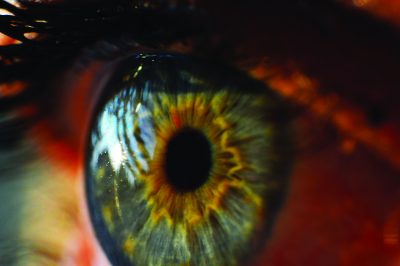×


We have detected your country as:
Please click here to go to the USA website or select another country from the dropdown list.
by: Jean Homer, BFP Staff Writer
 Injuries and diseases of the cornea are a leading cause of blindness worldwide “with 20-30 million patients in need of a remedy and around 2 million new cases a year,” according to information from Almog Aley-Raz, vice president of research and development for CorNeat Vision. After much research, this Israeli company has introduced a process and design for artificial cornea implants, the CorNeat KPro implant.
Injuries and diseases of the cornea are a leading cause of blindness worldwide “with 20-30 million patients in need of a remedy and around 2 million new cases a year,” according to information from Almog Aley-Raz, vice president of research and development for CorNeat Vision. After much research, this Israeli company has introduced a process and design for artificial cornea implants, the CorNeat KPro implant.
Very early in the 1900s, corneal transplants were attempted. Since that time, medical advancements have refined the process. However, a big drawback is the need for a human donor, recently deceased, with no diseases that would sabotage the eye tissue or health of the recipient.
A global survey in the Journal of the American Medical Association, Ophthalmology issue in February 2016, concluded that there is “only 1 [donor] cornea available for every 70 needed,” which meets less than 10% of the need worldwide. A reliable artificial cornea implanting design and process is desperately needed globally.
CorNeat Vision staff is planning for their first human artificial corneal implant mid-2018. Design and development stages are complete, including successful trials on rabbits. In addition, an implanting tool and manufacturing process have been finalized. Biocompatibility and safety tests will be conducted prior to the first human artificial implant.
An online article, “Artificial Cornea Startup Advances towards Human Trials,” described the surgical process, “CorNeat, a synthetic cornea, operates [as the] artificial optics are inserted under the membrane that covers the white of the eyes. Nanoscale chemical engineering is then used to stimulate cell growth and promote the implant’s integration into the tissue.”
CorNeat KPro implants—the process and the product—have been cleared by the European Patent Office, with patent pending, as reported in The Globe. Prof. Ehud Assia from the ophthalmic department of the Meir Hospital in Kfar Saba said that the approach and execution ability of the team “present a unique opportunity to finally address the global corneal blindness challenge.”
Photo Credit: skeeze/pixabay.com
All logos and trademarks in this site are property of their respective owner. All other materials are property of Bridges for Peace. Copyright © 2025.
Website Site Design by J-Town Internet Services Ltd. - Based in Jerusalem and Serving the World.